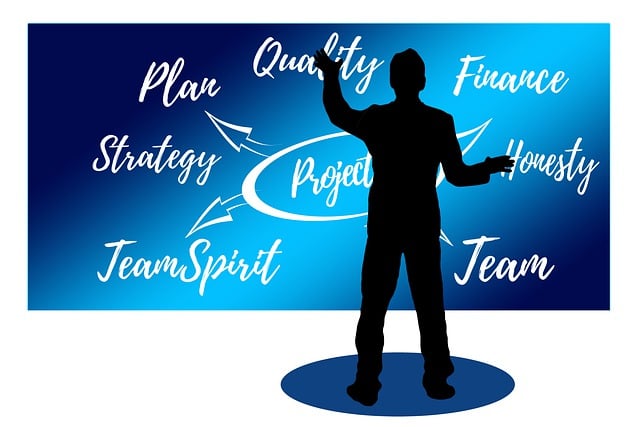WhatsApp marketing for businesses offers direct engagement with 2 billion global users, fostering relationships crucial for e-commerce success. High engagement rates and user-friendly interface enable instant customer service, product recommendations, and exclusive offers through tools like missed call text back functionality. Integration with landing pages and email campaigns enhances the customer experience, driving conversions and brand loyalty. Targeted contact lists based on interests, purchase history, and behavior increase engagement. Automation tools facilitate continuous interaction across WhatsApp and email. Crafting concise, engaging text campaigns aligned with brand voice, using compelling CTAs, and automation ensures success. Measuring KPIs like open rates, click-through rates, and conversion metrics is vital for refining future campaigns. Optimal engagement times maximize impact and maintain positive reputation.
“Unleash the power of WhatsApp marketing for your ecommerce business! In today’s digital landscape, engaging directly with customers through messaging apps is a game-changer. This article explores how WhatsApp can drive sales and build strong customer connections.
We’ll dive into three key strategies: unlocking the potential of this platform for ecommerce, crafting targeted messages that convert, and understanding optimal engagement times. By implementing these tactics, businesses can effectively leverage WhatsApp marketing to boost sales and foster loyal customer relationships.”
- Understanding WhatsApp's Ecommerce Potential
- Building a Targeted Contact List
- Crafting Effective Messaging Strategies
- Measuring Success and Optimal Engagement Times
Understanding WhatsApp's Ecommerce Potential

WhatsApp offers a unique opportunity for businesses to connect with their customers directly and foster strong relationships, which is particularly powerful in the world of ecommerce. With over 2 billion users globally, it presents an immense potential market for brands looking to expand their reach. The platform’s user-friendly nature and high engagement rates make it an attractive channel for WhatsApp marketing for businesses, especially those already established or new to the online retail space.
One effective strategy is leveraging missed call text back functionality. When a customer initiates a call but doesn’t get through, they can leave a message which triggers an automated response from the business. This two-way communication allows for instant customer service, product recommendations, and even exclusive offers, thereby increasing sales and building brand loyalty. Additionally, integrating WhatsApp with landing pages and email marketing campaigns can create a seamless customer journey, encouraging conversions and fostering long-term relationships.
Building a Targeted Contact List

Building a targeted contact list is a crucial step in implementing effective WhatsApp marketing for businesses that sell through e-commerce. It involves segmenting your customers based on their interests, purchase history, and behavior within your sales funnel. By creating distinct groups, you can tailor messages to specific segments, ensuring higher engagement rates and better conversions. This strategy leverages social media marketing automation tools that integrate with WhatsApp, allowing for seamless communication.
Using a combination of email marketing and WhatsApp, businesses can foster stronger customer relationships. These platforms enable continuous interaction, offering the right message at the right time. For instance, you could use WhatsApp to send personalized product recommendations based on past purchases or abandoned cart notifications, guiding customers back through your sales funnel. This multi-channel approach not only enhances customer experience but also drives sales, making it a powerful tool for any e-commerce business aiming to stand out in today’s competitive market.
Crafting Effective Messaging Strategies

Crafting effective messaging strategies is key to unlocking the full potential of WhatsApp marketing for businesses specializing in e-commerce. The platform’s direct and personalized nature allows for a unique connection with customers, enabling businesses to build stronger relationships. To achieve success, focus on creating concise and engaging text message marketing campaigns that align with your brand voice. Incorporate compelling calls-to-action (CTAs) within your WhatsApp messages, encouraging users to browse products, redeem exclusive discounts, or share feedback – driving conversions along the way.
Leveraging social media marketing automation tools can streamline your messaging process, ensuring consistent and timely interactions with your audience. These platforms often offer reputation management features as well, allowing you to promptly address customer inquiries, resolve issues, and foster positive brand perception. By integrating WhatsApp into your overall social media strategy, e-commerce businesses can enhance their customer service while showcasing a forward-thinking approach.
Measuring Success and Optimal Engagement Times

Measuring success is a crucial aspect of WhatsApp marketing for businesses, especially those in the ecommerce space. By tracking key performance indicators (KPIs), brands can understand what tactics are resonating with their audience and where improvements are needed. Open rates, click-through rates, and conversion metrics are essential to gauging engagement and sales generated through WhatsApp messages. For instance, analyzing which types of content or offers drive the most interactions can help refine future campaigns.
Optimal engagement times play a significant role in maximizing the impact of WhatsApp marketing. Unlike traditional email marketing, WhatsApp allows for more immediate responses, so timing becomes critical. Businesses should aim to send messages during peak user activity hours when the likelihood of engagement is highest. Research suggests that mid-morning or early afternoon sends often perform well, but it’s essential to consider your target audience’s time zones and preferences. This strategic approach ensures that messages aren’t overlooked and encourages a positive reputation management experience for both customers and businesses utilizing this ecommerce solution.
WhatsApp marketing for businesses has proven to be a powerful tool in the ecommerce landscape. By understanding its potential, building targeted contact lists, crafting effective messaging strategies, and optimizing engagement times, businesses can harness this platform’s capabilities to drive sales, enhance customer relationships, and ultimately succeed in today’s digital era. Remember that success in WhatsApp marketing hinges on providing value and maintaining open lines of communication – a testament to the strength of direct messaging in fostering meaningful connections with your audience.
